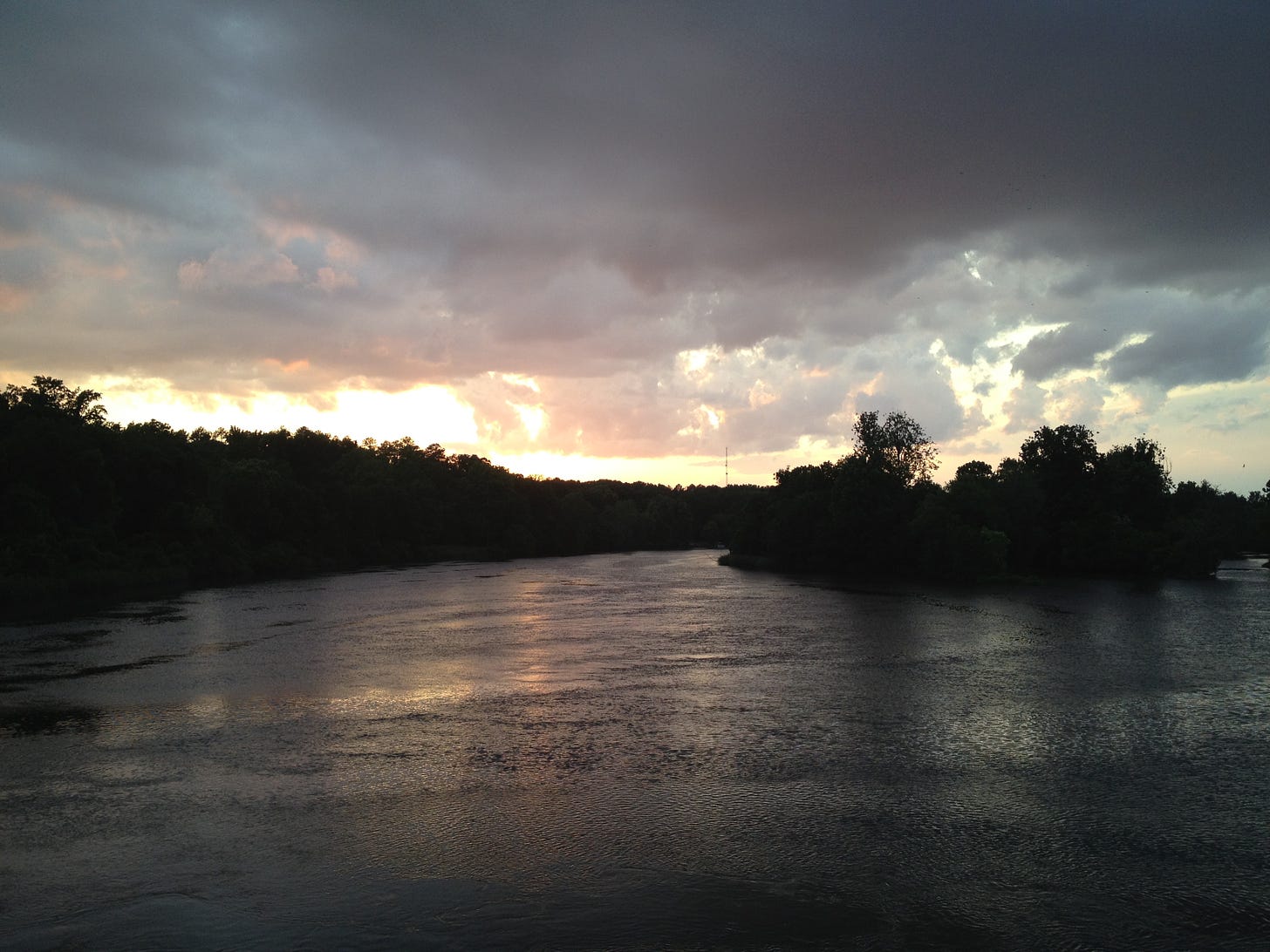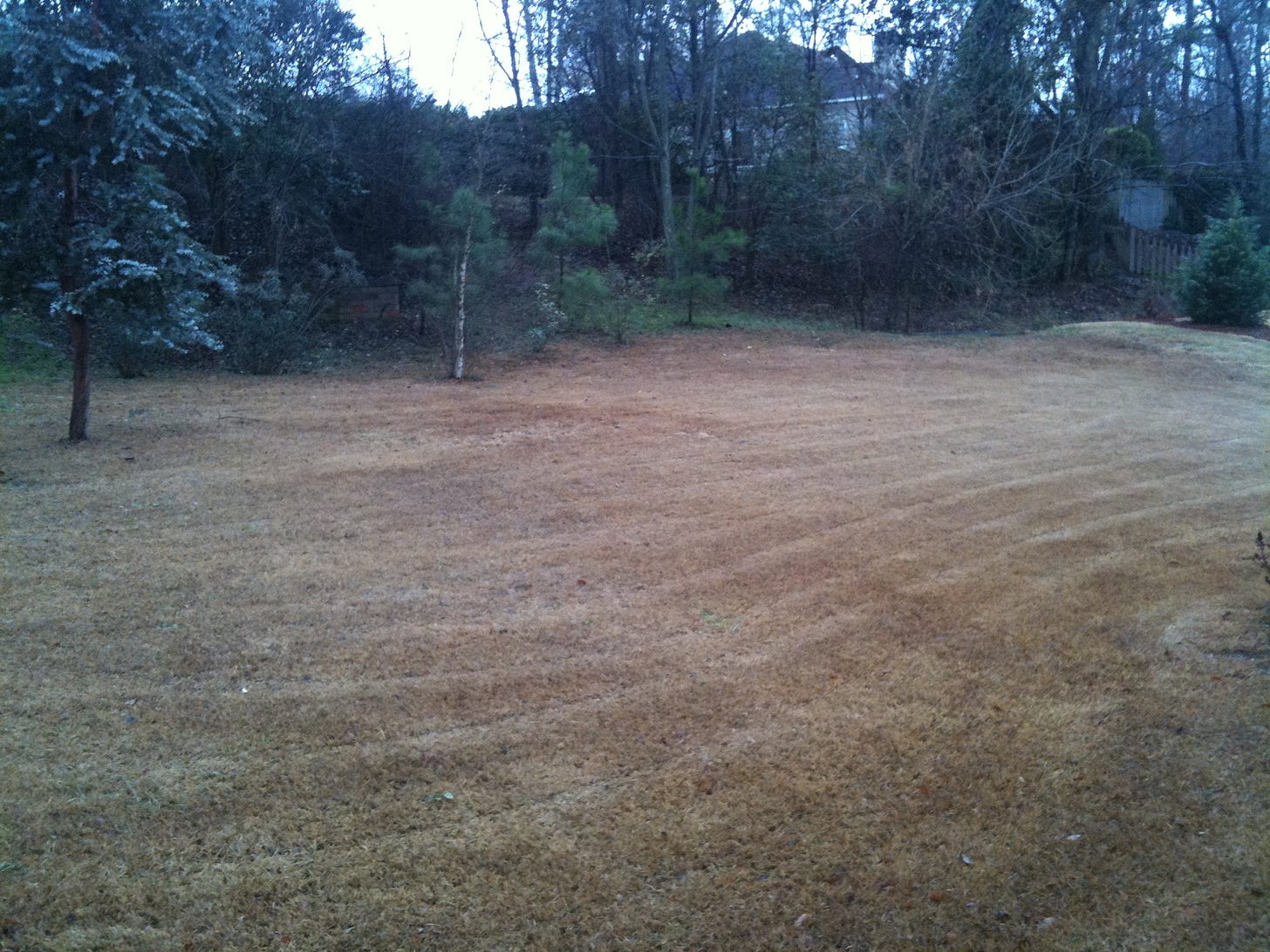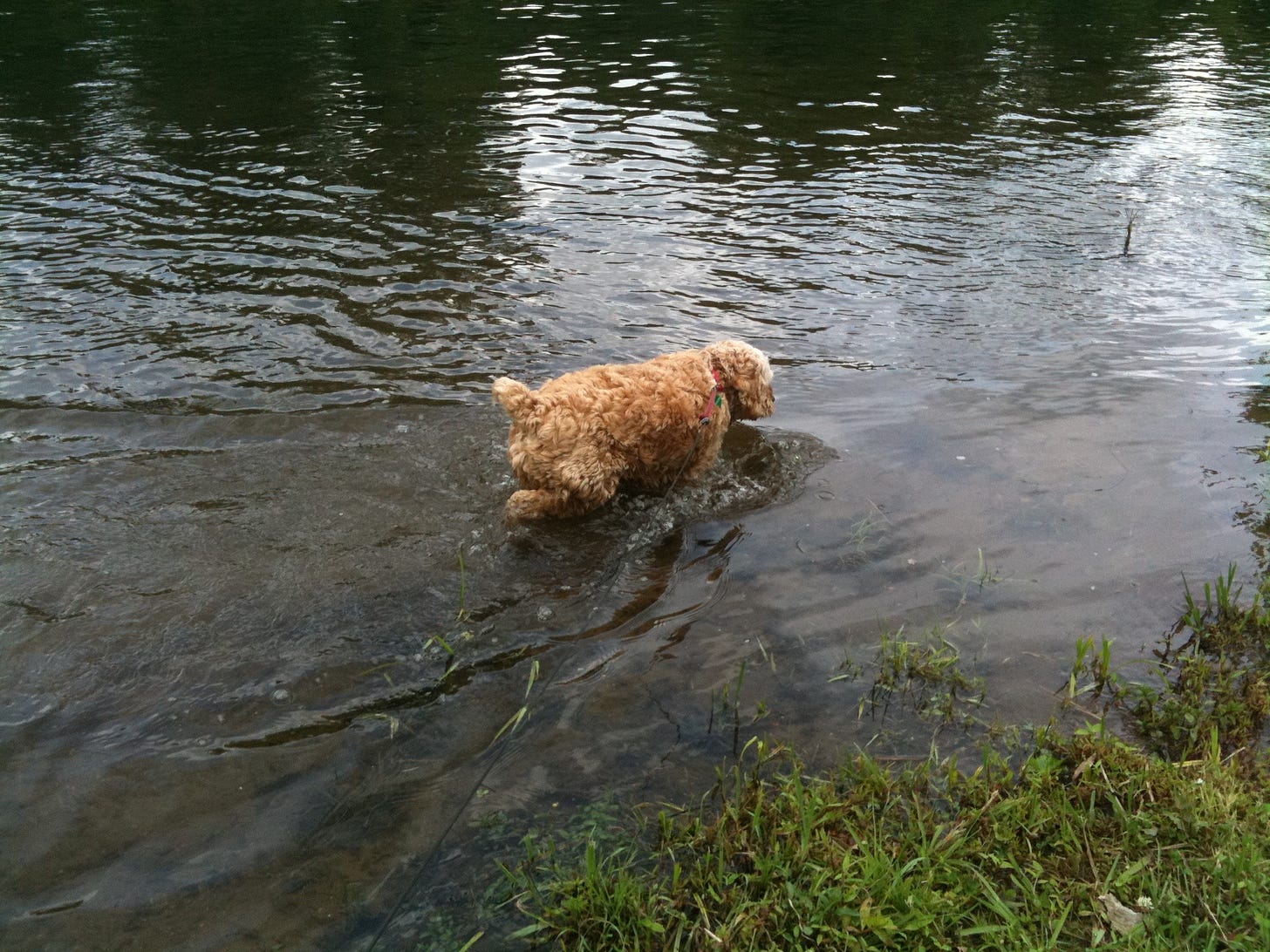Feeling alive: Embrace mini-adventures through the day
Do adventures have to be grand?
About a year ago, I embarked on a project to write a book. The book is about the lessons I learned from my dog, Spock. It is about how the lives of animals offer profound lessons that mirror ones from philosophy and ones you arrive at in meditation. However, I’ve been stuck because I couldn’t find the right voice. A chance conversation with another author helped me unlock it. He told me to write it as a conversation between friends. This resonated because the idea for the book started with a similar discussion with a friend (“RD”).
I am putting a chapter out here to see if the tone of voice works.

HS: Do you like adventures?
RD: Who doesn’t? We grow on stories that recount these adventures. You are quite an adventurer yourself.
HS: I think of myself as a tiny adventurer - it's a part of who I am.
RD: Absolutely. Your trip to the Amazon jungle to drink ayahuasca with the Shamans has made for many entertaining post-dinner conversations.
HS: Here we go again. Might I add, I did the Ayahuasca thing before it became fashionable to go on one!
RD: Maybe :-). That said, flying down to Peru after reading an article in National Geographic that called the visions emanating from it as something people experience when they die takes some fortitude and definitely qualifies you as an adventurer.
HS: Thanks. The five nights of drinking Ayahuasca are the most intense experiences of my life.
RD: Or the other time you convinced a bunch of friends over a dinner party to sign up to hike to Everest Base Camp. I missed that trip, but it did sound “epic.”
HS: Yes, it was.
RD: Before we go down the rabbit hole of recounting adventures, why the question about adventures?
HS: I have often wondered why we like adventures. Is it getting the bonafide credentials to brag or something else?
RD: The element of risk and the corresponding adrenaline rush that makes you feel alive is critical.
HS: Agreed. The adrenaline rush is a crucial component.
RD: Does that mean that to feel alive, we must always seek out these big adventures?
HS: Great question. “Why do these adventures have to be grand?”
I have managed to string “just” a handful of these adventures in the last dozen years, even after identifying myself as an “adventurer.”
Does our life have to be punctuated by occasional but planned events where we stop and put ourselves in some danger to feel alive? Or is there a better way to feel alive all the time?
RD: Every story is framed as a grand adventure. Why can’t an adventure be small? Can we have adventures in our daily lives?
HS: Let me take you on a short journey and see if we can answer that question.
Lazy Augusta — fertile ground for adventures
The year was 2012.
My parents had moved to Augusta, Georgia, from Kuala Lumpur, Malaysia. Moving to a new country in your late sixties is also a “severe” case of adventure. This was the second time they had moved a nation; the first time, they were in their forties, from Mumbai, India, to Malaysia. So maybe they are adventurers, too, but I digress.
In Augusta, they moved to a beautiful home in a community with a golf course. As with other homes in this community, and as is the case in the US South, this was a gargantuan southern home. Massive 10-foot tall windows on either side of the gorgeous door, painted pitch black, contrasting against the beautiful white of the house. As your eyes got past this beautiful facade, you noticed through the window on the right that there were stairs leading to another floor on the top. There were bay windows on this floor looking into the front yard. A bay window and a setting that you invited to spend the afternoon reading and watching the world go by. As your eyes moved from the windows towards the kitchen on the right on the lower floor, you noticed a beautiful outhouse with a small vegetable garden separating the kitchen and outhouse. The outhouse was something out of a French village, and I imagined artists sitting on the upper floor capturing the moods of this picturesque setting against the thunder and lightning that happens almost every day.

The backyard stretched a hundred meters, with a single tree in the middle. It was not yet majestic but promised to be one in the years to follow. The backyard wasn’t fenced; a number of trees lined it, and it felt that they were intentionally planted to prevent you from discovering a creek that lazily made its way around the community.

Augusta is on a migratory path from Florida to up north with a fantastic variety of birds and the Cardinal—the king of them all, paying a daily visit to our backyard.
If this idyllic world got too dull, you could hop in the car for a ten-minute drive to walk by the Savannah River.
Several animals made their way through the backyard, including hares and deer.
Spock was two and was busy discovering the new world where I had taken him for a few months. He was discovering this world with the indefatigable energy of a puppy.
Adversaries show up in our backyard
I woke up groggy at about 3 a.m. to incessant barking. The barking echoed through the house, amplifying an already high-pitched bark that usually stemmed when Spock sensed danger.
"Wait, wut. Why are you barking?" I asked, rubbing my eyes and squinting in the dark, only to find Spock had run down the stairs from the upper floor. So now I had to follow him down to see what he had seen and shut him up so I could go back to sleep.
I found him squarely pointed at something in the backyard. I saw a family of three deers lazily munching something from our garden in the darkness.
If you knew Spock, you knew it would be a herculean effort to remove his laser focus from what had caught his attention.
His adrenaline pumping, he was not going to let them go unless we let him out (we didn't) to face this adversary—a veritable David taking on a Goliath that was 5-8 times bigger than he was.
Once he had driven them away with his barking, he was happy. He gave me a proud look, the one he reserved for "I saved you from the danger of the beast called the postman," and followed me upstairs. However, he kept his vigil through that night and all subsequent nights we stayed in Augusta.
I hadn't realized that Spock could now discern the smell of deer. Over the next few days, I realized that he could also pick out the smell of hares and a variety of other animals.
He had now ranked them in the order of perceived danger and excitement that each animal brought with them and tuned his behavior according to the threat assessment.
Mini-adventures in chasing down adversaries
Life became a series of mini-adventures involving cat and mouse (dog and deer, perhaps) games with put-your-favorite-Georgia-animal-here and Spock.
HS: You mentioned that what makes adventures exciting is the rapid beating of the heart, which is caused by adrenaline pumping through one's arteries.
RD: Right!
HS: Well, every night, we had Spock laser-focused, attention locked outside the house, waiting for the family of deers or hares or whatever animal he could now smell.
His heartbeat was usually racing. Excitement level jumped up a few notches if he heard a rustle.
Every walk was a new mini-adventure, him straining at the leash, eagerly pulling me across the road towards the creek because he had smelt a deer.
He was out in a flash if he smelt a deer and was off-leash. Streaking past the roads, running after the deer who were too fast for him. If they lost him, he would pick up the scent of their trail and follow them. This scene was repeated so often that I was soon known in this neighborhood as the Indian-guy-running-after-his-cute-puppy.
My heart used to be racing at every one of these chases because I didn't know if I could keep up with him or lose Spock.
Or face a problem far worse.
Spock also figured out that getting into the Savannah River usually brought out a snake to check out what animal was in the water and if the animal could be a meal.
This thought of a snake doing a reverse check-in on Spock got my adrenaline going.

The Mexican standoff
I must admit, I enjoyed these chases. So, I used to play a little game of "Russian roulette" by occasionally leaving him off-leash to see what he did next.
The unpredictability made me feel alive.
One evening, we were lounging on the swing in our backyard.
It was a languid, laid-back, warm, humid, typical southern evening. The sun was setting to the echoes of Cicadas all around us. It was the evening when time stood still, and it felt like nothing interesting would happen.
Then...we heard a rustle.
In walked a deer
It somehow had missed seeing us.
Then they both saw each other.
Time stood still.
For that micro-second, both looked at each other and sized each other. It felt like a Mexican standoff was in the air. Nobody was moving, as both sides evaluated who would make the next move.
I can imagine a complex algorithm going through Spock's head as he evaluated the two choices in front of him in that microsecond.
Choice status quo: Let it be. Let the deer go.
Choice mini-adventure: Chase the deer down. (and to hell with all the "Spock! No's! " from Harry)
The choice of status quo would lead him down the regular boring track in life. There would be no excitement, entertainment, or opportunities to recount grand stories at the end of the evening.
He had no idea where the choice of mini-adventure would lead him to. He might be running through the mud and come out completely dirty to a heavy scolding by Harry. He might catch the deer and stand triumphantly over the deer, getting it to submit for some game of play or he might end up in a joust with the magnificent creature.
Any guesses on to what he chose?
Life as a series of mini-adventures
HS: We have many micro "Mexican standoff" moments throughout the day. We are too busy browsing Instagram or watching the next WhatsApp forward to notice any of them.
If we do happen to be out on walks and have the opportunity to trod a path less taken, we don't.
We take the predictable turn while listening to some music or podcast.
We have lost the ability to spot any opportunities for these mini-adventures.
The joy of shared mini-adventures
RD: A key component of your story is that these aren't mini-adventures of a lonely David out fighting a mini-Goliath.
HS: What do you mean?
RD: What made these mini-adventures special is that you both did these together. There was a sense of a shared experience. A thrill that was shared by both of you.
RD: I imagine you both walking back tired after a long chase through the creek. Thoroughly tired, thoroughly spent but completely satisfied.
HS: Absolutely, the walk back home was joyous. I would pretend to scold Spock, and he would look back at me, utterly satisfied, and then with a look that said, "Don't tell me that you didn't enjoy that. C'mon, really!" he would run off after the hare he just spotted!
RD: The truth is that you did enjoy these shared adventures. What fun!
# Mini-adventures abound everywhere
RD: So where do we end up with the question, "Do adventures have to be grand?"
HS: Yep, we have settled it definitively that they don't need to be grand. You can find plenty of these mini-adventures around.
RD: Right. Step back and see what you could have done differently today. Could you have pulled out a box of paints and sat down to make a painting, enjoying the thrill of putting color on paper, not knowing if there was something fantastic on the other end?
Could you have gone out on a walk in a lesser-known neighborhood?
Or a hike that is rather edgy.
When was the last time you made a prank call to someone?
(I don't recommend it, but hey that will get the heart racing)